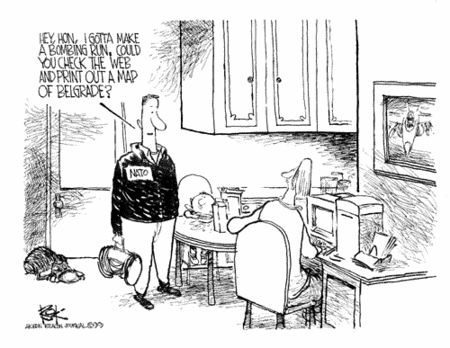| Open Source Intelligence | 2004-05-25 13:52 7 comments |
 by Flemming Funch by Flemming FunchRobert Steele is a champion for OSINT - Open Source Intelligence. He's a former U.S. Intelligence Officer who now for years has run OSS.NET, a company selling intelligence services to government and big companies. “At its best, OSINT is the complete marriage of the proven process of intelligence, from requirements definition and collection management to timely analytics, with all — and I do mean all — legally and ethically available sources. It is important to emphasize the paucity of those endeavors that are limited to English or the main European languages. If one cannot work in 29 plus languages on a 24/7 basis — that is in real time and near real time, — one is not serious. Print and broadcast media are actually the smallest part of the open source universe. Untapped perceptions, oral histories, informal exchanges, limited edition local publications, pre-prints, and geospatial as well as imagery information of all kinds — including photos from cells phones with geospatial positioning system information — this is the larger open source universe.Steele has been trying hard to get the U.S. government to use more open source intelligence. As he suggests, if you only look for the stuff that is secret, you might miss all the stuff that's easily and openly available. But what I think is cool about Open Source Intelligence is not just that it might make governments do less stupid things, but rather that it is equally available to the rest of us, if we organize ourselves well. A relatively small number of us could very well be more informed about many things than the CIA. A large number of us, well enough organized, with good enough tools, could perpetually be better informed and more collectively intelligent than any government agency. |